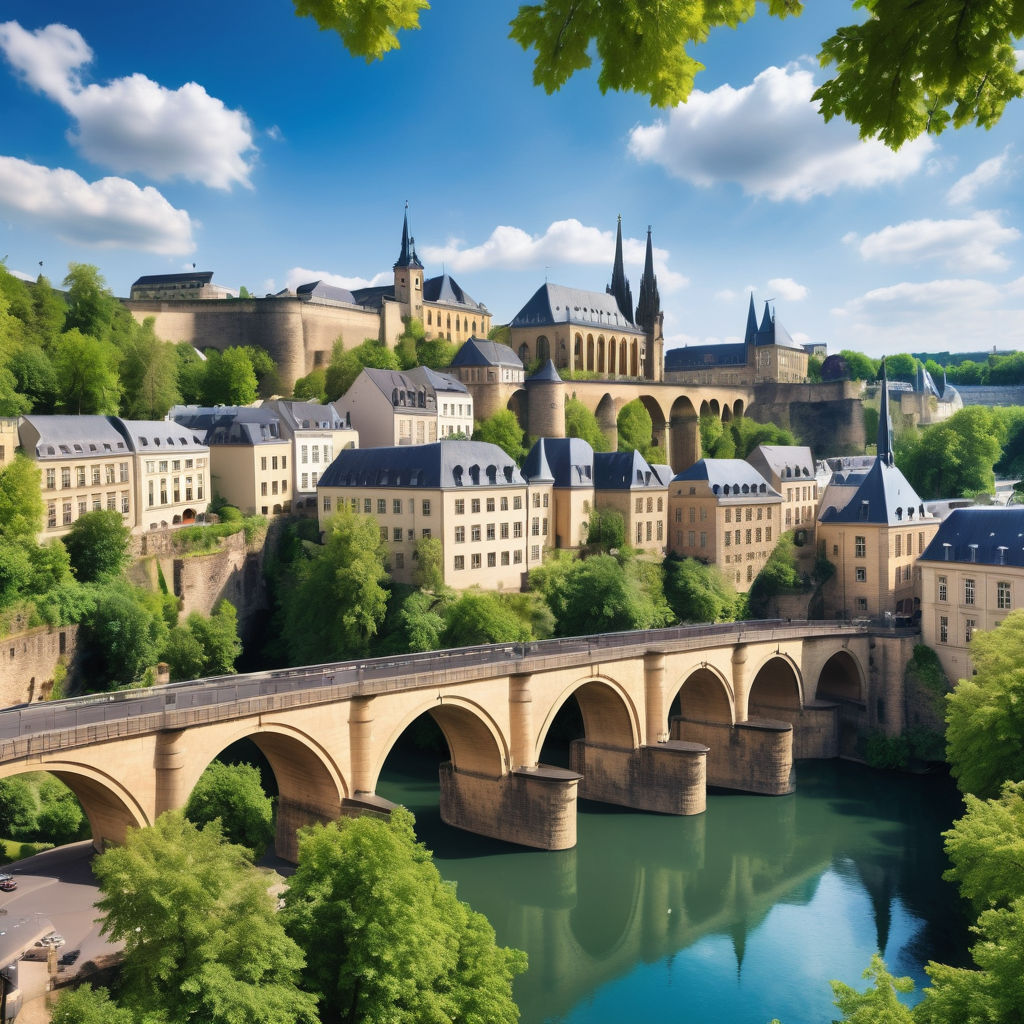Introduction to Luxembourg: A Blend of Cultures in the Heart of Europe
Explore Luxembourg: History, Culture, and Community

Introduction to Luxembourg
Luxembourg, officially known as the Grand Duchy of Luxembourg, is a small, landlocked country in Western Europe. It is bordered by Belgium to the west and north, Germany to the east, and France to the south. Despite its small size, Luxembourg is renowned for its rich history, vibrant culture, and significant economic influence in Europe. The capital city, Luxembourg City, is known for its medieval old town, fortifications, and as a key administrative center for several EU institutions. Other major cities include Esch-sur-Alzette, known for its industrial heritage, and Differdange. Luxembourg's cultural heritage is a fascinating blend of French, German, and indigenous Luxembourgish influences. This unique cultural amalgamation is reflected in the country's traditions, festivals, and daily life. The country celebrates numerous events such as the Schueberfouer, a traditional funfair dating back to 1340, and the National Day on June 23, which features parades, fireworks, and communal celebrations. Luxembourgish cuisine, featuring dishes like Judd mat Gaardebounen (smoked pork with broad beans) and Quetschentaart (plum tart), showcases the country's agricultural bounty and culinary traditions.
Cross-national and Cross-cultural Understanding
Luxembourg's population is notably diverse, with nearly half of its residents being foreign nationals. This demographic diversity fosters a strong culture of cross-national and cross-cultural understanding. Luxembourgers generally perceive and engage with other cultures positively, valuing the rich contributions that various cultural backgrounds bring to their society. Cultural exchanges are a significant part of life in Luxembourg. The country hosts numerous festivals and events that celebrate both local and international traditions. For example, the annual Festival des Migrations, des Cultures et de la Citoyenneté in Luxembourg City celebrates the multicultural aspects of the country, featuring performances, food, and crafts from around the world. Additionally, Luxembourg's participation in international organizations such as the EU promotes cultural and educational exchanges. Educational programs in Luxembourg emphasize global awareness and cross-cultural understanding. Schools and universities incorporate multicultural perspectives into their curricula, encouraging students to appreciate and respect diversity. The University of Luxembourg collaborates with international institutions to facilitate student and faculty exchanges, enriching the educational experience and fostering global connections.
Interactions and Social Dynamics
Typical interactions between Luxembourgers and foreigners are characterized by warmth, respect, and a strong sense of community. Social behaviors in Luxembourg reflect a blend of traditional customs and contemporary influences, emphasizing respect for others, hospitality, and communal living. Communication styles in Luxembourg are generally informal and friendly. Luxembourgish, French, and German are the official languages, with English also widely spoken, especially in business and tourism sectors. This multilingualism facilitates interactions with tourists and expatriates, making it easier for them to integrate into the local community. Cultural norms in Luxembourg place a strong emphasis on respect for elders, community involvement, and punctuality. These norms create a welcoming and inclusive atmosphere for foreigners, who often find it easy to adapt to the local way of life. Public displays of affection are generally accepted, reflecting the country’s relaxed social attitudes.
Views on Dating and Relationships
Attitudes towards dating and relationships with foreigners in Luxembourg are generally open and accepting. Luxembourgers are open to forming relationships with individuals from different cultural backgrounds, recognizing the enrichment that such diversity brings to their lives. However, cultural expectations and traditions do play a role in shaping these views. Family involvement is significant in relationships in Luxembourg, with elders often playing a crucial role in the approval process. Traditional customs emphasize respect, patience, and the gradual building of trust in relationships. While modern dating practices influenced by global trends are becoming more common among younger generations, traditional values still hold sway in many communities.
Marriage and Family
Marrying a foreigner in Luxembourg involves navigating both legal and social considerations. Legally, the country has clear regulations governing marriage, including residency requirements and the need for proper documentation. Socially, cross-cultural marriages are generally accepted, though couples may face challenges related to cultural differences and integration. Familial acceptance is a key factor in cross-cultural marriages. Luxembourgish families can be protective, and gaining their approval is often essential for the relationship's success. However, the diverse cultural landscape of Luxembourg means that many families are already familiar with and accepting of different cultural backgrounds, which can facilitate smoother integration for foreign spouses. Trends in cross-cultural marriages reflect Luxembourg's open and inclusive society. Many Luxembourgers who travel abroad for education or work form relationships with individuals from various cultures, bringing back diverse customs and traditions that enrich the local community.